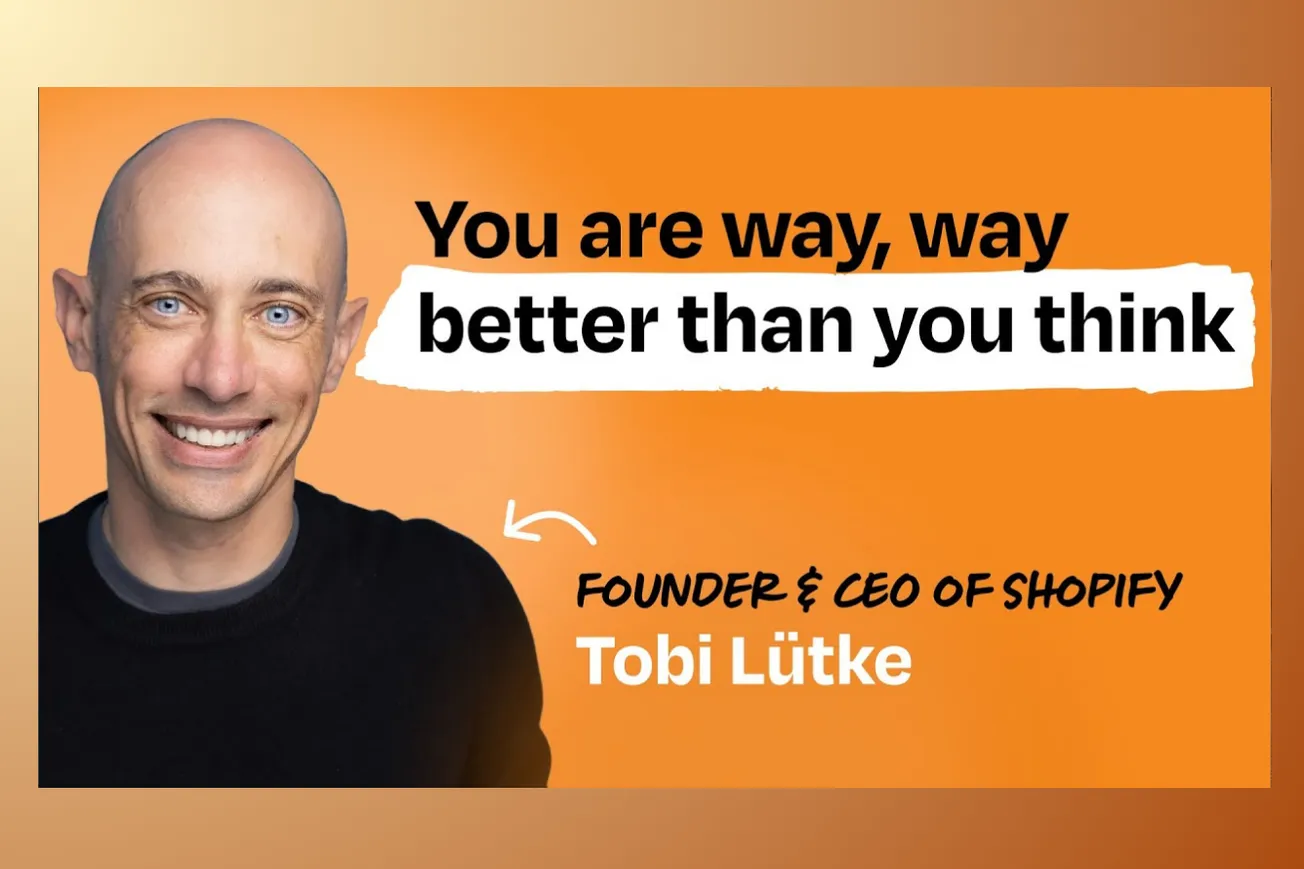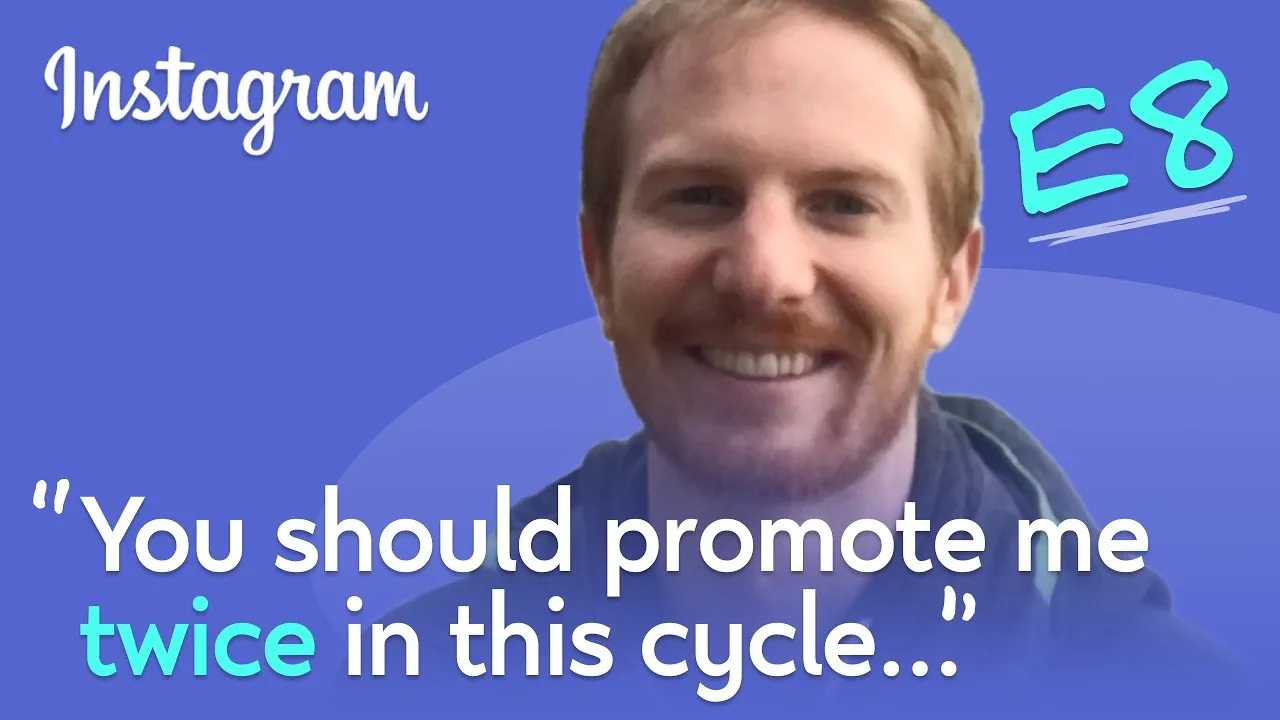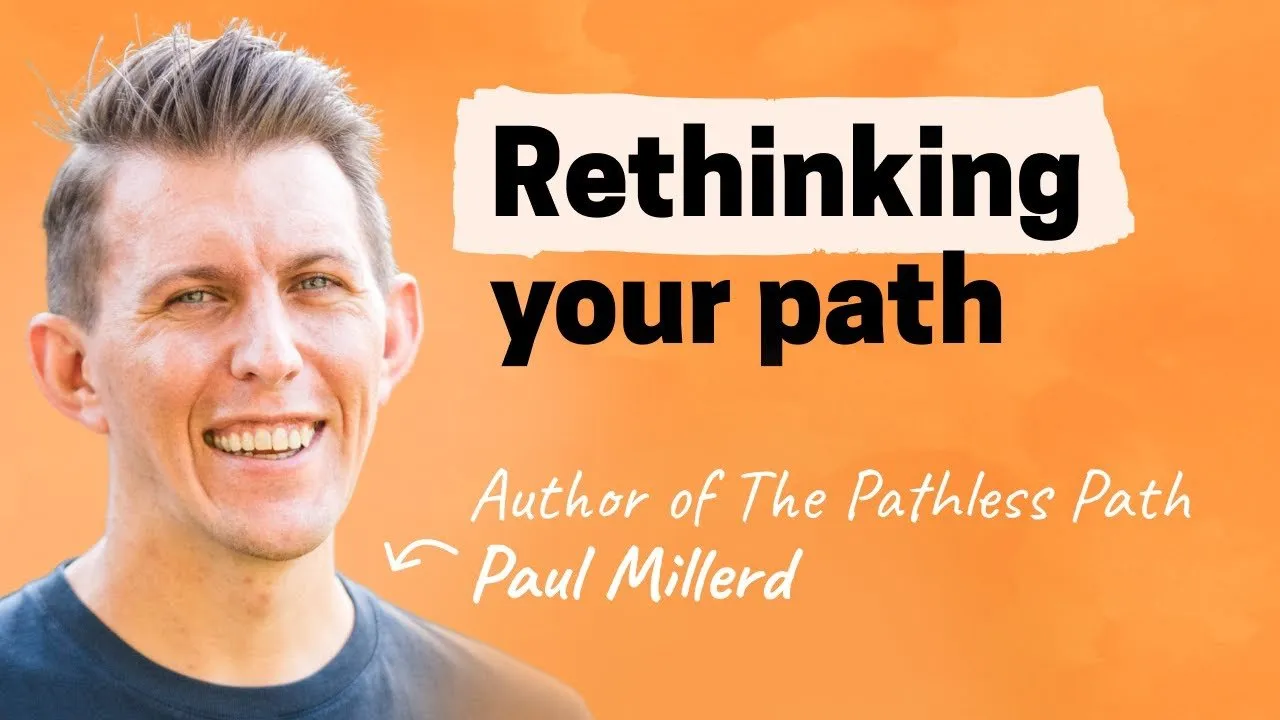Table of Contents
Tobi Lütke reveals how first-principles thinking, infinite games, and maximizing human potential created one of the world's most successful e-commerce platforms.
Shopify's founder shares the contrarian strategies that transformed a snowboard shop into a $130 billion empire, from eliminating KPIs to working backwards from a 100-year vision.
Key Takeaways
- First-principles thinking requires rebuilding solutions from foundational assumptions rather than copying existing approaches
- Traditional metrics become counterproductive when they transform from measurement tools into optimization targets
- Maximizing human potential demands holding people to higher standards than they set for themselves
- Long-term vision enables better decision-making by providing context for short-term trade-offs
- Complexity kills entrepreneurship—every simplified feature creates more businesses than sophisticated alternatives
- Following curiosity and building unique talent stacks leads to unprecedented opportunities
- Great products require teams that genuinely care about what they're building, not just process optimization
- Courage is rarer than intelligence in business, making disagreement and challenging assumptions invaluable
- Operating principles should derive from physics-level fundamentals, not inherited industry practices
Timeline Overview
00:00-04:17 - Energy Sources for Builders: Why dissatisfaction with status quo fuels progress and the aesthetic trap of conventional business wisdom
04:17-07:10 - The Toby Tornado: Rapid decision-making that compresses time by killing unproductive projects to maximize career fulfillment
07:10-11:05 - Maximizing Human Potential: How direct feedback and elevated expectations unlock capabilities people never knew they possessed
11:05-16:47 - Overfitting in Education and Business: Why optimizing for metrics destroys curiosity and how Goodhart's Law applies to schools and companies
16:47-25:00 - Operating Without KPIs: Building sophisticated data systems while deferring to unquantifiable qualities like taste, joy, and craftsmanship
25:00-40:04 - First Principles Thinking: Deriving solutions from foundational building blocks rather than path-dependent legacy approaches
40:04-45:59 - Boolean Assumption Changes: How COVID-19 remote work decision exemplifies rerunning optimization functions when core assumptions flip
45:59-54:46 - Staying Technical as CEO: Why coding alongside engineers provides atomic-level understanding necessary for first-principles leadership
54:46-01:01:27 - Embracing Disagreement: Creating environments where courage trumps intelligence and productive conflict reveals hidden assumptions
01:01:27-01:09:29 - The 100-Year Vision: Working backwards from century-scale missions to inform present decisions and partnership strategies
01:09:29-01:17:15 - Infinite Games Strategy: Balancing positional play versus tactical execution in business as exploration of larger possibility space
01:17:15-01:28:42 - Complexity Kills Entrepreneurship: How every interface simplification measurably creates more businesses and democratizes opportunity
01:28:42-01:34:30 - The Talent Stack: Following curiosity intersections to build unique capability combinations that create unprecedented opportunities
01:34:30-01:36:39 - Passion in Product Leadership: Why teams must genuinely care about what they're building and the infectious nature of authentic enthusiasm
The Toby Tornado: Compressing Time Through Radical Decision-Making
Tobi Lütke operates with what his team calls the "Toby tornado"—a concentrated burst of change management that can reshape entire projects within hours. This approach stems from a fundamental belief that time compression prevents waste and maximizes career satisfaction.
- When Lütke identifies a flawed project direction, he immediately halts progress rather than allowing teams to continue unproductive work
- The process involves rapid conversation, conflict resolution, and project restructuring with clear ownership transitions
- Team members become "founders of the next version" rather than casualties of cancelled initiatives
- This methodology prioritizes long-term career fulfillment over short-term comfort and convenience
The tornado concept reflects Lütke's conviction that careers are finite resources. With roughly 40 years in industry, professionals must optimize for projects they'll remember proudly rather than activities that merely occupy time. This perspective drives aggressive project culling and rapid pivoting when evidence suggests alternative approaches.
Effective implementation requires establishing psychological safety around change while maintaining accountability for results. Teams learn to expect and embrace rapid shifts when data contradicts assumptions, creating organizational agility that traditional planning processes cannot match.
Maximizing Human Potential Through Elevated Expectations
Lütke's approach to human development centers on a radical premise: no person operates anywhere near their maximum potential. This belief drives his direct feedback style and high-standard culture at Shopify.
- Direct feedback focuses on untapped potential rather than current performance limitations
- High standards create environments where people accomplish things they never imagined possible
- Reminding people of their capabilities becomes a continuous leadership responsibility
- Personal growth has no speed limit when approached with proper methodology and mindset
The implementation requires leaders to maintain higher confidence in team members' abilities than those individuals possess themselves. Lütke describes being "harder on myself than on anyone else" while applying similar standards to his organization through careful calibration.
This philosophy extends beyond individual development to product creation. Shopify's mission involves helping entrepreneurs exceed their initial ambitions, creating businesses larger and more successful than originally conceived. The same potential-maximizing principles apply to both internal teams and external customers.
The risk involves disappointing people who cannot meet elevated expectations. However, Lütke argues this disappointment is preferable to the alternative: allowing talented individuals to operate below their capabilities due to artificially limited environments and assumptions.
Operating Without KPIs While Remaining Data-Informed
Shopify deliberately avoids traditional key performance indicators and objectives-and-key-results frameworks, instead investing heavily in sophisticated data systems that support rather than replace human judgment.
- Goodhart's Law demonstrates that metrics cease being useful when they become optimization targets
- Complex businesses require multiple tension management rather than single-metric optimization
- Shopify invests enormous resources in comprehensive data systems providing real-time insights
- Decision-making authority remains with human judgment supported by quantitative information
The distinction involves treating data as a cockpit instrument panel rather than autopilot system. Leaders receive comprehensive information about every constituent component affecting business performance, enabling informed decisions without metric-driven tunnel vision.
This approach acknowledges that roughly 80% of valuable business activities remain unquantifiable. Focusing exclusively on measurable elements creates competitive disadvantage by ignoring factors like taste, quality, passion, and customer delight that drive long-term success.
Implementation requires building exceptional data infrastructure while training teams to prioritize qualitative judgment. The system includes sophisticated rollout mechanisms, correlation analysis, and real-time monitoring, but final decisions incorporate unquantifiable elements like craftsmanship satisfaction and brand representation.
First-Principles Thinking: Rebuilding From Foundational Assumptions
Lütke's first-principles methodology involves systematically questioning every inherited assumption and rebuilding solutions from fundamental building blocks rather than incremental improvements on existing approaches.
- Path dependence creates suboptimal solutions optimized for constraints that no longer exist
- Every existing product reflects compromises made during its original development context
- True innovation requires understanding current technological building blocks and their composability
- Skipping first-principles analysis represents an abdication of product leadership responsibility
The process resembles running a pure function in programming: taking current state information and re-deriving every foundational decision to determine optimal approaches given present capabilities. This methodology prevents falling into local maxima created by historical limitations.
Practical application involves analyzing why existing solutions developed their current form, identifying assumptions that may no longer hold true, and designing alternatives optimized for present and future constraints rather than past limitations.
The COVID-19 remote work transition exemplifies this thinking. When the fundamental Boolean of "can people leave their houses" changed, Shopify re-ran their entire location strategy optimization function, ultimately deciding to become permanently remote because distributed hiring provided better talent access than geographic concentration.
The 100-Year Vision: Working Backwards From Ultimate Outcomes
Shopify operates with explicit 100-year planning horizons that inform present-day decision-making and create competitive advantages through long-term thinking.
- Software projects cannot survive 100 years, but missions and purposes can endure across multiple technological generations
- Long-term focus enables better partnership decisions and prevents short-term optimization at long-term expense
- Future-casting provides context for present choices by considering what future versions would want current teams to decide
- Entrepreneurship normalization represents a mission worthy of century-long pursuit
This temporal perspective transforms daily decisions by providing ultimate outcome context. Rather than optimizing for quarterly results, teams consider which choices contribute most effectively to long-term mission achievement.
The approach enables exceptional partnerships like Shopify's relationship with Stripe, where both companies assumed mutual success and optimized for compound growth rather than immediate advantage extraction. Long-term thinking converts business relationships from zero-sum competitions into positive-sum collaborations.
Implementation requires identifying mission elements that transcend technological change cycles. For Shopify, making entrepreneurship more common represents a goal achievable across multiple technology generations, providing consistent direction regardless of specific implementation details.
Courage Over Intelligence: Creating Environments for Productive Disagreement
Lütke prioritizes courage over intelligence when building teams, viewing disagreement as the most valuable form of organizational input and feedback mechanism.
- Courage appears rarer than high intelligence in business environments
- Disagreement requires both intellectual honesty and personal bravery to execute effectively
- Productive conflict reveals unstated foundational assumptions that may require updating
- Playing devil's advocate prevents groupthink when proposals seem too predictable or safe
The methodology involves immediately stopping conversations when disagreement emerges to explore divergence points systematically. Rather than dismissing contrary opinions, Lütke investigates underlying assumption differences that create perspective gaps.
This approach builds organizational trust by demonstrating genuine openness to being wrong and changing positions based on evidence. Team members learn that intellectual honesty receives reward rather than punishment, encouraging more effective decision-making processes.
Implementation requires modeling vulnerability by publicly updating opinions when presented with superior alternatives. Leaders must actively seek disagreement when consensus seems too easy or when proposals lack surprising elements.
Entrepreneurship Through Complexity Reduction
Shopify's core insight involves recognizing that interface complexity directly inhibits business creation, making user experience design a moral obligation with measurable economic impact.
- Every simplification of complex business processes creates measurably more entrepreneurship
- Entrepreneurs often operate from positions of financial constraint, technical inexperience, and social discouragement
- Software complexity frequently causes business abandonment at critical formation moments
- Automatic handling of taxes, payments, and regulations removes entrepreneur failure points
The data demonstrates direct correlation between feature simplification and platform business creation. Each removed complexity barrier enables entrepreneurs who would otherwise abandon their ventures due to technical obstacles beyond their expertise.
This principle drives product development philosophy: rather than adding features requested in enterprise RFPs, Shopify focuses on eliminating decision points and automating background complexity. The approach prioritizes entrepreneur success over software sophistication.
Implementation requires identifying moments when complexity causes entrepreneur abandonment and designing systems that handle these challenges automatically rather than requiring user configuration or understanding.
Common Questions
Q: How can leaders implement first-principles thinking in their organizations?
A: Start by analyzing path dependence in existing solutions and questioning inherited assumptions systematically.
Q: What does operating without KPIs actually look like in practice?
A: Invest heavily in data systems while using human judgment for decisions, treating metrics as support tools.
Q: How do you balance direct feedback with team morale?
A: Focus feedback on untapped potential rather than current limitations while modeling high standards personally.
Q: What makes someone ready for first-principles thinking?
A: Understanding atomic building blocks in your domain and being willing to rebuild rather than iterate.
Q: How do you maintain long-term vision in quarterly-focused business environments?
A: Identify mission elements that transcend technology cycles and optimize for century-scale outcomes.
Conclusion
Tobi Lütke's leadership philosophy centers on three interconnected principles: systematic first-principles thinking, aggressive human potential maximization, and infinite game strategy. These methodologies transformed a struggling snowboard shop into a $130 billion commerce empire through practical application rather than abstract theory.
The practical implications are immediately actionable. Leaders must develop comfort with rapid decision-making when evidence contradicts assumptions, invest in comprehensive data systems while resisting metric-driven decisions, and stay technically involved in their domain's fundamental mechanics. This technical grounding enables questioning inherited solutions and rebuilding from foundational assumptions rather than accepting path-dependent limitations.









